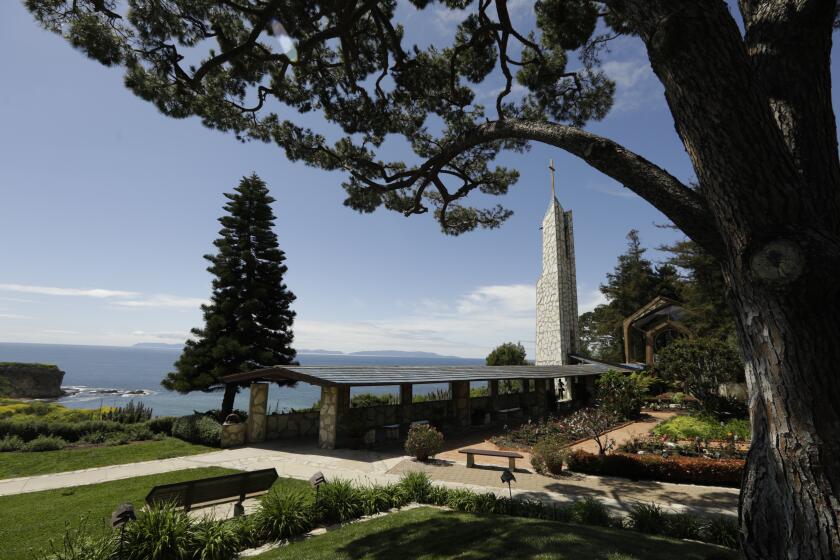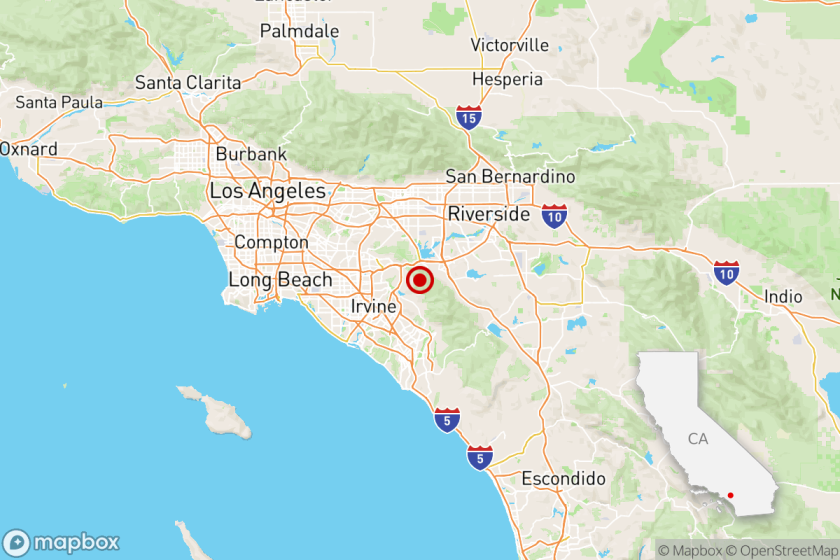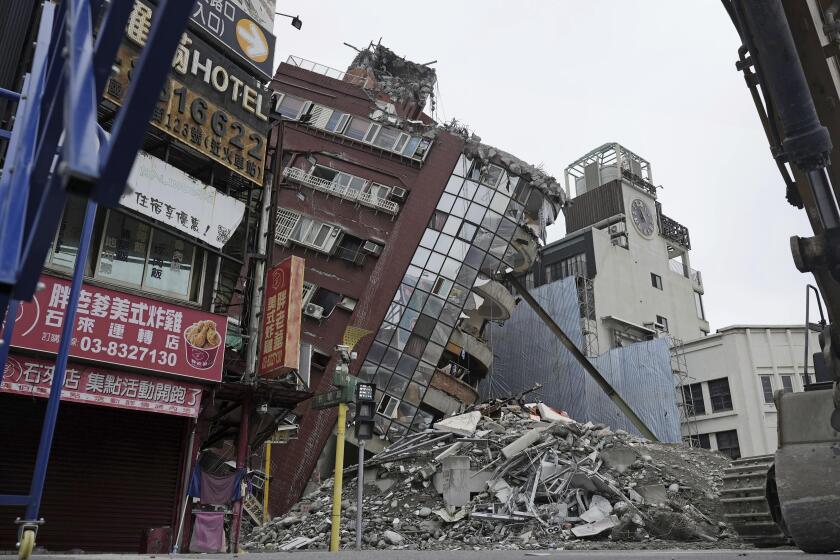Ordinances on Palisades Oil Drilling Invalidated
In a major victory for local environmentalists, a Superior Court judge Thursday invalidated city ordinances authorizing Occidental Petroleum Corp.’s controversial plan to drill for oil on the coast in the Pacific Palisades. It was the second major setback for the oil company’s intended project in the past eight days.
Judge Norman Epstein ruled that a critical element of the project--pipeline safety--had not been properly addressed in the environmental analysis that must be complete before the drilling operation can be approved. Drilling ordinances based on a faulty environmental review are not valid, Epstein declared.
Occidental officials said they plan to appeal the decision.
Steeped in politics, the drilling proposal has perpetuated one of the most bitter civic disputes in recent history. It arose as a major campaign issue between then-Mayor Sam Yorty and his successful challenger, Tom Bradley, in 1973 and has figured prominently in several subsequent City Council elections.
Thursday the judge was ruling in a lawsuit brought by No Oil Inc., a group of Pacific Palisades residents who have been fighting the project in City Hall and in the courts since the early 1970s. No Oil has contended that Occidental’s oil wells would deface the coastline and threaten a fragile landscape that is vulnerable to landslides and earthquakes.
For Occidental, which reports having spent $12 million trying to win approval for the oil-drilling operation, the judge’s decision came as an unhappy end to a bad week. On Dec. 12, a city zoning administrator refused to grant the company a coastal permit, declaring that the drilling project would risk permanent damage to the coastal environment.
While both rulings are subject to appeal, the consequences of Epstein’s action are potentially graver since, by nullifying the drilling ordinances, it takes away Occidental’s license to continue seeking a coastal permit. Deprived of the ordinances, the company must once again start down a slow, perilous political path toward approval by the Los Angeles City Council.
City Councilman Marvin Braude, who represents Pacific Palisades and has led council opposition to the project, was in court Thursday and hailed the judge’s decision “as a triumph, not only for the residents of the Palisades but for people all over the state who care about the coastline.”
Arthur Groman, a member of the executive committee of Occidental’s board of directors, who was also present in the courtroom, heatedly disagreed. Standing nose to nose with an angry Braude, Groman accused the councilman of “arrogance” and of taking a position that is bad for the city.
“I don’t see how depriving the city of $200 million in taxes and royalties is a public service to the city of Los Angeles,” Groman said, estimating the city’s profit share of an oil field that he said could be worth up to $1 billion.
Assails No Oil Inc.
Turning his ire on No Oil, Groman said the members were “a small group of anonymous citizens (who) should not be permitted to overturn the votes of three city councils.”
The judge’s ruling marks the third time the project has been stopped on environmental grounds after the council approved it. The California Supreme Court reversed the council in 1974 and Los Angeles Mayor Tom Bradley vetoed the council’s action in 1978.
The council’s most recent approval came last January. It was a particularly sweet victory for Occidental because Bradley, who had opposed the project for many years, chose to give it his blessing this time.
For a decision that could devastate Occidental’s plans, the judge’s ruling Thursday came on a rather narrow point.
Unlike the zoning administrator, Epstein did not conclude that the drilling itself threatened the environment. Instead, he focused on what Groman and others regarded as a secondary issue--Occidental’s proposed oil and gas pipeline.
There are two parts to the judge’s ruling on the pipeline.
Lack of Information
First, he found that Occidental’s environmental impact report, which must be complete under state law, did not provide enough information about pipeline safety. Occidental had not indicated which of four possible routes it would use or how the preferred route would be safely operated. The five- to seven- mile pipeline routes would lead east from the beachfront wells, past schools and homes in and around Pacific Palisades and join ultimately with refinery trunk lines.
Second, Epstein ruled that all of the ordinances, even the parts that did not deal with the pipeline, must be invalidated since the council had not drafted them in such a way that they could not be considered separately.
“I don’t believe the project can be segmented or chopped up,” Epstein said.
Occidental’s lawyers had hoped to convince the judge that the portion of the ordinance dealing with exploration could be salvaged.
That would have allowed the company to drill exploratory wells, but not put them into production until the safety of the pipeline had been assured. Moreover, the lawyers argued that without drilling the exploratory wells, Occidental could not obtain the geological data it needed to complete the environmental review on the pipeline.
The judge’s ruling, Groman said, puts Occidental in “a Catch-22” situation.
One Tied to the Other
“If we can’t drill the exploratory wells, we can’t complete the EIR (environmental impact report) on the pipeline. . . . If we can’t complete the EIR, we can’t do the exploratory wells.”
In Epstein’s view, however, the company does not face that plight. He said that nothing barred Occidental from going back to the City Council with a request for a new ordinance that would limit it to exploratory drilling.
The judge said he could not let stand the portion of the ordinance permitting exploratory drilling, even though a pipeline would not be needed for exploration. To do so, the judge said, would require him to reshape the ordinance by rejecting one part and letting another part stand.
This, he said, would involve “trespassing in the legislative area.”
More to Read
Start your day right
Sign up for Essential California for news, features and recommendations from the L.A. Times and beyond in your inbox six days a week.
You may occasionally receive promotional content from the Los Angeles Times.






